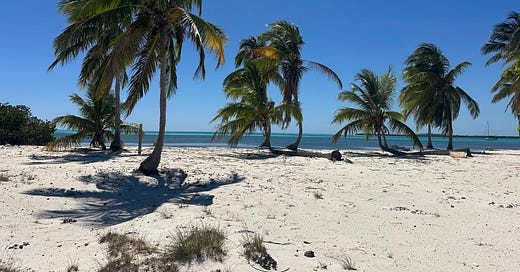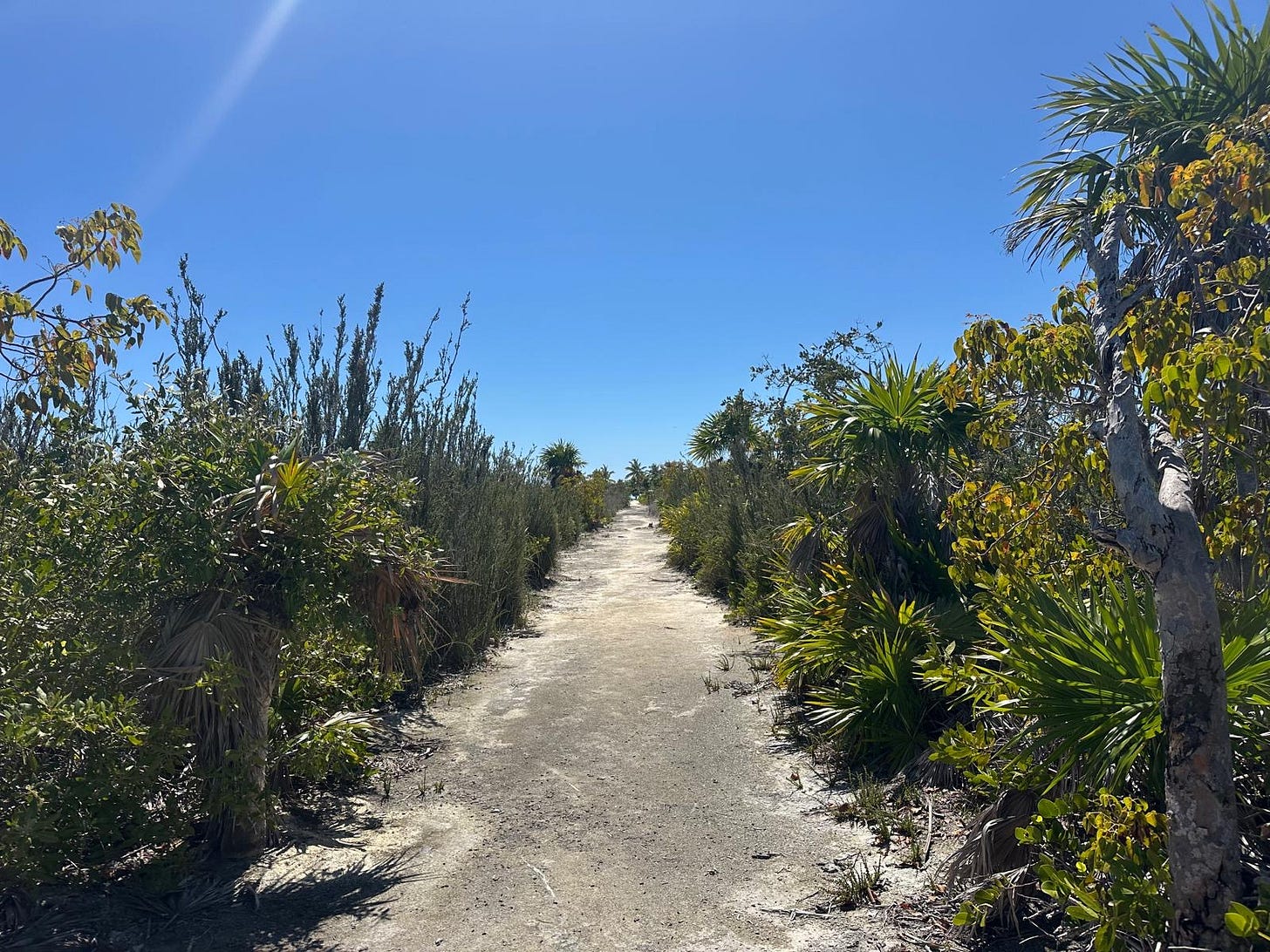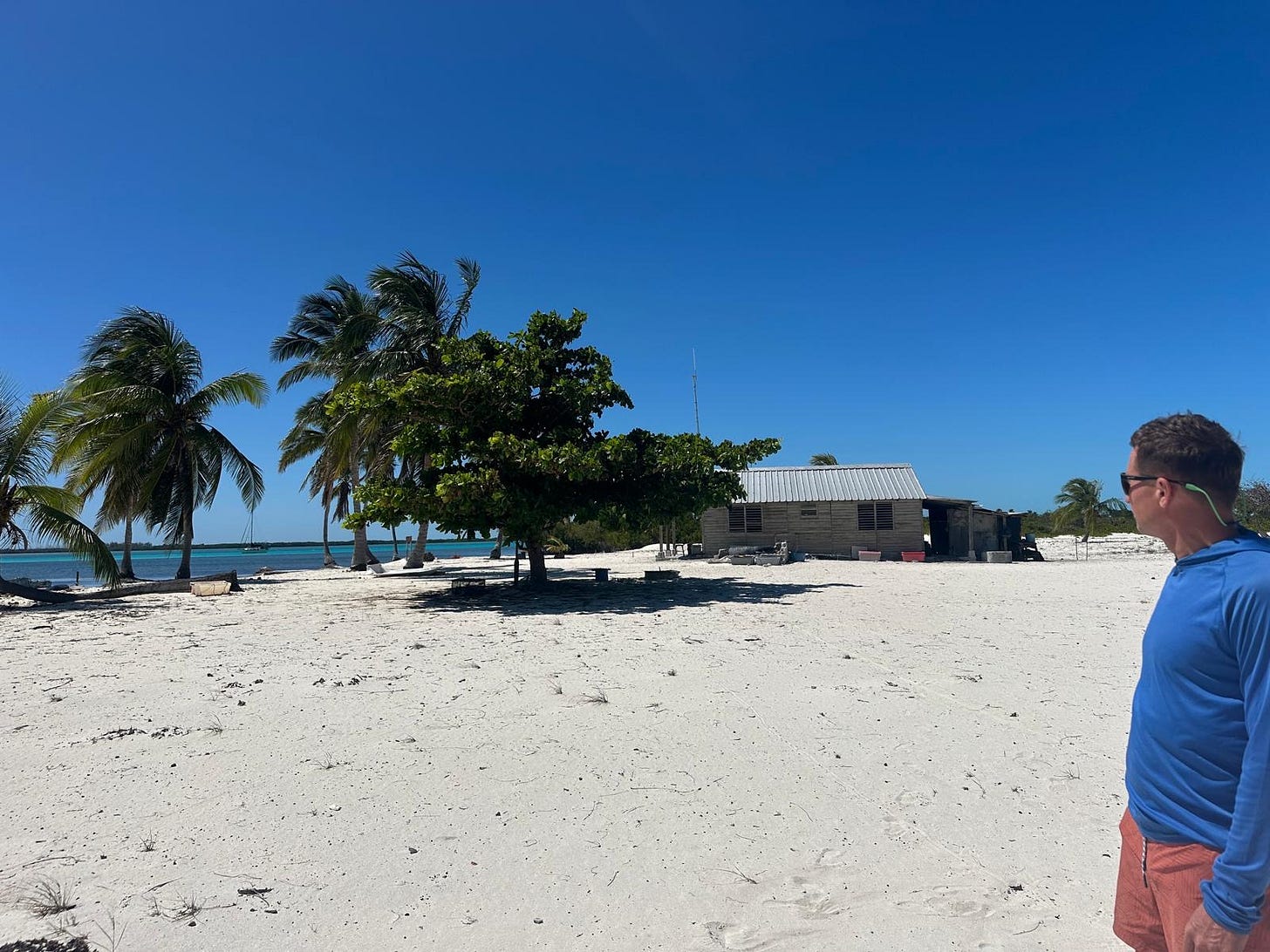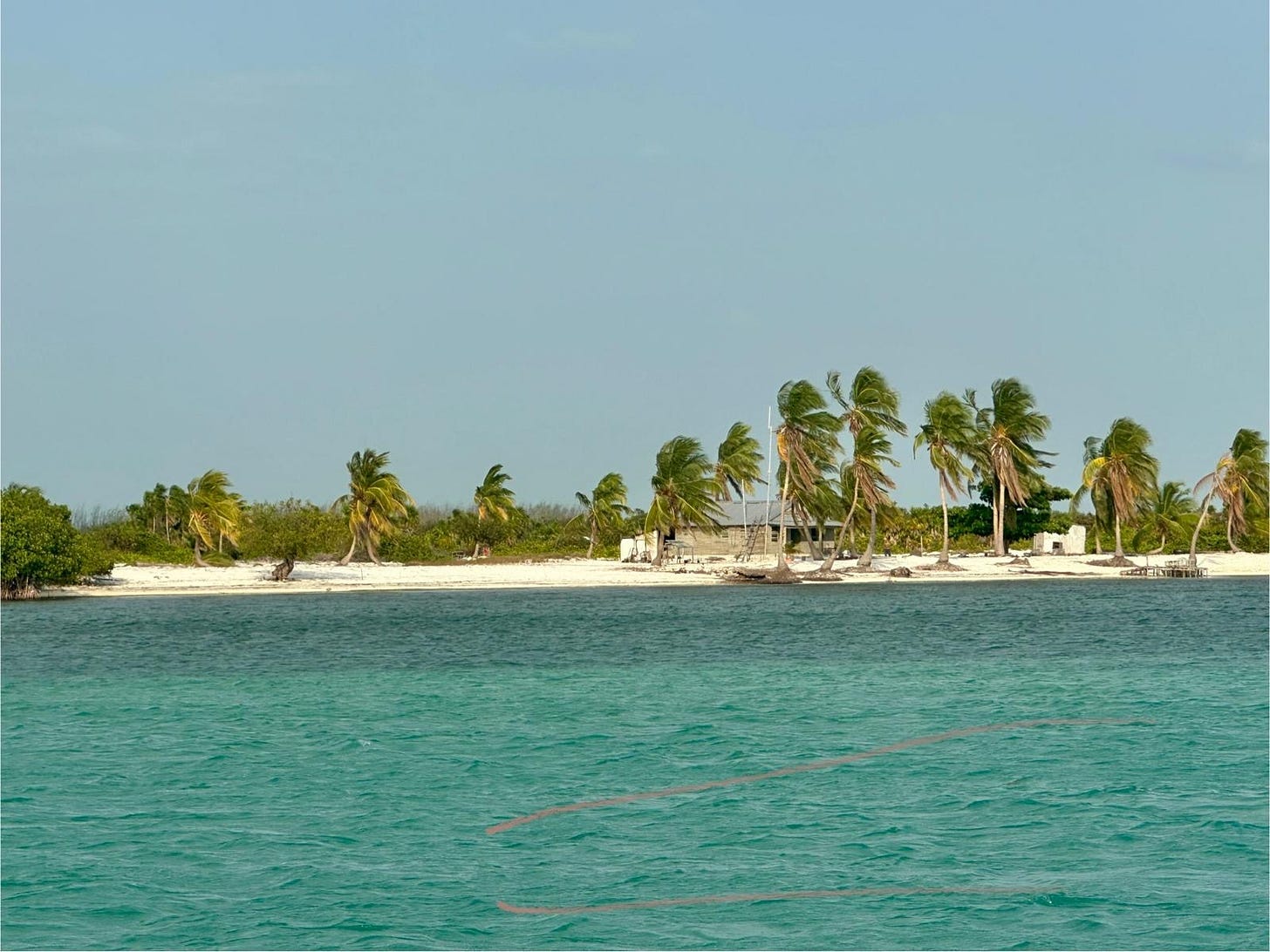Rangers of Cayo Campos - Guardians of the Monkeys.
A stop on an island of the Archipelago de los Canarreos.
This is the narrative story from this week’s Travel Banter podcast episode. For those who prefer reading to listening, here it is.
The ranger waves his hand and points to his left. He is on shore, a hundred feet away. He is calm but adamant with his direction. I steer our dingy to starboard and understand his urgency. A shallow flat is to port, and much of the same is to starboard, but a narrow channel, deep enough for our dinghy, leads to what is left of the dock. The ranger throws the thumbs up once we are aligned with the channel. When our dinghy hits the sand, he takes my bow line and whips it around a wooden stake driven into the sand. The stake is a piece of ocean flotsam polished by the waves.
“Hola!” we say.
“Que tal,” he says and waits for us to exit.
He is shirtless, tan, in shorts, and barefoot. His hair is thick and white. He is in his sixties, trim, and without an ounce of fat on his body. He carries a hint of a smile. I don’t think the smile is for us. Instead, it is always on his face, a mark of tranquility and inner peace. I don’t know that, of course, but that is how I read it.
We met him earlier in the morning when he and his comrade paddled a wooden dinghy to our boat to ask for sugar and coffee beans. The provision boat did not make it to the island from the mainland because of high winds, they explained, so they are out of coffee until the end of this week. We shared some of our stash, and they invited us to visit them. The monkeys should come out to eat on the beach later, they said.
The ranger ties our boat and waves us to follow him inside the station. The station is a wooden shack: three small rooms without doors. The only door is to the outside kitchen with a well-used wood-fired grill. The front room is empty but for five chairs. Four are facing each other, and another is facing the wall. The back room has two simple, utilitarian beds. The walls are empty. No adornments, no photos, no books, no shelves.
The two men sit down in the chairs and offer us the other two. They are both shirtless.
“How is life here?” I ask.
“Boring but tranquil.”
“Do you have many tasks?”
“No, just feeding the monkeys and reporting illegal fishing.”
“Much of that going on?”
“Illegal fishing? No, not at all,” The younger man answers the questions. The older man who met us glances out the window and glances at us. Sometimes, he nods.
“Do you like it here?”
“Tranquil,” the older man nods, “But boring. Not much to do. But yes, content.”
The two men are here for a month at a time. When two other men replace them, they go home to the nearby Isla de Juventus and to their town, Nueva Gerona. The cell service reaches here with the help of a tall repeater antenna mounted on a high post so they can talk to families. A month here, a month at home. Yes, of course, they have to work in Gerona too, they say, doing other jobs in their off month. The salary is too low - twelve thousand pesos a month is all they volunteer. I shake my head, that is enough for six drinks in Havana.
We leave the men and walk a sandy trail. Iguana tracks run along the pass and cross it - a straight, deep line in the sand from a tail and sets of even prints of four paws. Only a few monkey prints here and there. Monkeys are shy creatures. They prefer the trees. Iguanas scurry away, too, but we see them in numbers.
Only one set of human footprints in the sand. It is from one of the Rangers. The tourist boats stopped coming here much. It happened last year. Foreigners are nervous about the reported food shortages and power blackouts in Cuba, so they stay away. The foreigners brought the money, and without their money, the place fell into further disrepair. A vicious cycle. Unbreakable without a government investment or private capital. But neither is forthcoming.
We walk onto the beach. It is miles long, empty of people, but full of plastic trash blown here by the prevailing winds. A yellow bottle of vinegar is half buried in the sand. An empty jug of bleach is among the weeds. A plastic shoe, another shoe, many more shoes, but never from the same pair. The rangers clean the beach at times, but it is a Sisyphean task. The cleanup lasts until the next week of strong winds when the detritus of distant human lives, much richer than those here, drifts on the waves and settles among the drying seaweed. The seaweed camouflages much of it. At a distance, the white sand and palms combine into a photo of the island of dreams. A hundred years ago, before the plastics, the photo would have been true.
We walk the beach for two miles. An easy walk. The beach curves in a crescent and disappears around the point. We make it there and see another bay beyond. It is just as beautiful, the waters calm and azure and the white breakers are a mile off to sea, crashing onto reefs. Stunning. Just don’t look too closely at the plastic trash.
Back at the ranger station, the men ask us to join them for another fifteen-minute chat. They crave a company. We chat about the monkeys. They have been brought here three hundred years ago from Vietnam. We talk about fishing. They give me a small bait fish for the plentiful barracuda. We talk about politics. My Spanish is not equipped for that but we muddle through, connecting on the universals of discontent with politicians. Then we chat about life - those bits about people and families that make a human happy.
The next day, as I watch the island recede behind the horizon, I think of the corporate cubicle warriors from the States, my former colleagues. How many would trade their places with these men? Trade the money, the hustle, the weekend commitments for the tranquility and simplicity of life? Tempting. I suspect many think they would. I remember the conversations. But then again, this dreamy ease of life is like a picture of a stunning beach. Exactly what one wants. Yet, when you look closer, there is a bottle of vinegar hiding in the sand, a faded jar of bleach, and a worn-out shoe. The trash of life, impossible to leave behind. The sand looks whiter, yes. The life seems calmer, yes. But when we land somewhere, anywhere, to make it right, we still must do much cleaning.









I want to follow your path, Egor. You are correct, so many things look quintessential but only from a distance.
What kind of monkeys?